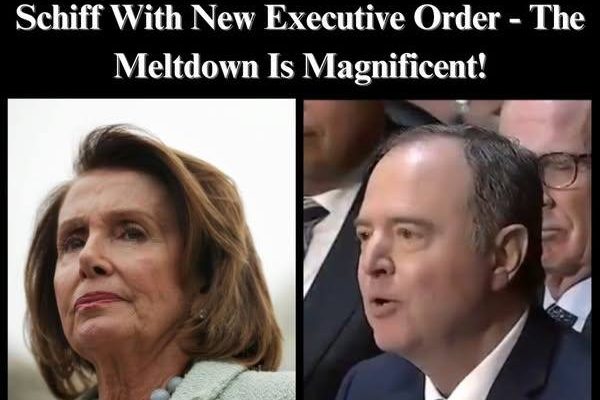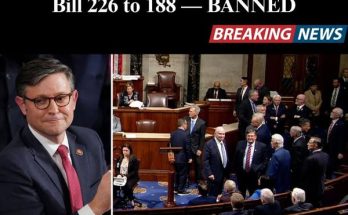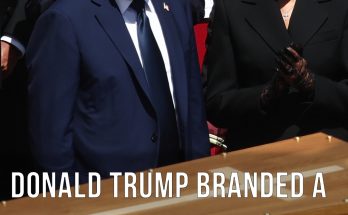The former President Donald Trump’s choice to grant a broad pardon to the majority of individuals involved in the January 6 Capitol insurrection has ignited intense political and legal discussions, receiving strong criticism from Democratic leaders while garnering significant support from his followers.
This executive action, impacting around 1,600 individuals, has rekindled the debate surrounding one of the most polarizing incidents in contemporary American history. Democratic leaders quickly condemned the action, asserting that it establishes a perilous precedent and undermines the rule of law. Senate Majority Leader Adam Schiff expressed his disapproval, labeling the decision a ‘grotesque abuse of power’ and cautioning that it legitimizes political violence. He pointed out that many of those receiving pardons had committed violent acts, including assaults on law enforcement officers who were defending the Capitol during that tumultuous event.
Schiff’s comments reflect the profound frustration among legislators striving to hold accountable those responsible for the attack. Likewise, former House Speaker Nancy Pelosi characterized the mass pardon as a betrayal of the courageous individuals who risked their lives to uphold democracy.
‘This decision conveys a chilling message,’ she stated. ‘It indicates to future extremists that they can violently assault our institutions without facing significant repercussions.’ Pelosi has consistently emphasized the seriousness of the January 6 attack, and her remarks highlight concerns that such a decision will embolden those intent on undermining democratic processes in the future.
Numerous Democratic lawmakers have voiced apprehensions that these pardons could diminish public trust in the government’s capacity to enforce the law impartially and consistently. Some argue that this executive order exemplifies Trump prioritizing his personal and political interests over the fundamental principles of the nation. Legal analysts have also cautioned that this decision may have extensive consequences for how future administrations address politically sensitive legal challenges.
In spite of significant criticism from Democratic leaders and legal experts, supporters of Trump have hailed the mass pardons, perceiving them as a long-overdue rectification of what they consider an unjust persecution of political dissenters. Numerous conservatives contend that the legal system unfairly targeted individuals who were merely engaging in protests, rather than committing serious crimes.
They assert that the prosecutions were driven by political motives aimed at silencing opposition, rather than representing a sincere attempt to uphold justice. Among the defenders of the pardons is House Republican Marjorie Taylor Greene, who remarked that many of those arrested and prosecuted were ordinary citizens who became embroiled in the situation.
Greene stated, ‘The Biden administration weaponized the DOJ to pursue political adversaries. These pardons represent a move towards reinstating fairness.’ Alongside several other notable Trump supporters, Greene has argued that the government’s reaction to the Capitol riot was excessive and intended to convey a political message rather than merely enforce the law. Following the signing of the executive order, Trump issued a statement defending his choice as an act of compassion and equity.
‘The radical left aimed to ruin the lives of patriotic Americans for simply opposing a rigged system,’ he asserted. ‘These admirable patriots should never have been treated as criminals.’ His remarks illustrate the profound divide in perspectives among various political factions regarding the events of January 6 and the subsequent legal repercussions faced by those involved.
Laurence Tribe, a distinguished legal scholar, warned that this ruling may undermine the fundamental principle of accountability. He posed the question, ‘If those who assault democracy do not face significant repercussions, what prevents a recurrence of such actions?’ His apprehensions are shared by former federal prosecutor Glenn Kirschner, who noted that no contemporary U.S. president has granted pardons on such a magnitude to individuals convicted of offenses against the government. Kirschner stated, ‘This represents a wholly unprecedented and troubling chapter in American history.’ While presidents have previously issued contentious pardons, none have done so with implications as extensive for our democratic integrity.
Critics of Trump are examining the possibility of contesting certain pardons in court. While legal experts largely concur that presidential pardons are challenging to reverse, there is a belief that granting clemency on such an extensive scale may provoke new legal disputes that will challenge the limits of executive power.
As these events progress, the country stands at another pivotal juncture. Will this widespread pardon be regarded as a measure of justice or a perilous precedent that undermines democratic accountability? The outcome may influence not only Trump’s political trajectory but also the enduring stability of American democracy. Ultimately, only time will reveal how this remarkable moment will be assessed by history.



